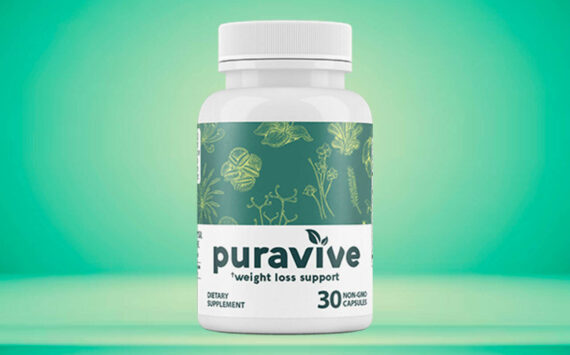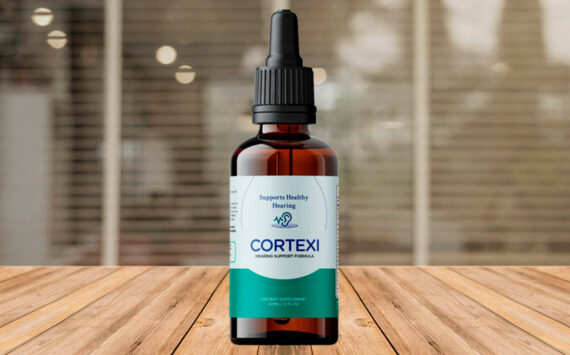Among the millions of products on the health and fitness market today, fish oil is one of the most widely used nutritional supplements of them all. This is due to the fact that it is high in omega-3 fatty acids, which have been proven to be extremely beneficial to overall good health.
If you don’t consume much fish that is oily in nature, supplementing your normal daily diet with fish oil pills or liquid may be a good way to ensure that you receive enough omega-3 fatty acids in your diet.
In this article, we will cover 12 important health advantages of taking a fish oil supplement that you should know about, along with other vital information you can use to decide what kind of Omega 3 fish oil supplement could be best for your needs.
What exactly is fish oil and how is it produced?
The “fish oil” that is used to produce Omega 3 fatty acid supplements is a type of fat-based oil that is obtained from the flesh of various types of fish, including anchovies, herring, tuna, and mackerel. While there are other types of seafood that contain this compound, those mentioned are the most commonly used for fish oil supplement products. Another widely used source of fish oil is cod liver oil. It is also occasionally derived from the livers of other fish, as is the case with salmon liver oil.
Approximately 1–2 servings of fish per week are recommended by the World Health Organization (WHO). As a result of the omega-3 fatty acids found in fish, the body enjoys several vital health advantages, including protection against a variety of serious ailments.
While eating 1–2 pieces of fish per week is ideal, if you don’t receive enough omega-3s from your diet, fish oil supplements can assist in this regard. The omega-3 fatty acids constitute approximately 30% of the total weight of fish oil, with the remaining 70% consisting of other lipids. Furthermore, fish oil is commonly found to contain small amounts of vitamin A and D.
Remember that the forms of omega-3s found in fish oil have more health advantages than the types of omega-3s found in some plant sources, which is crucial when considering which form of omega-3 oil is best for you.
Alpha-linolenic acid (ALA) is the primary kind of omega-3 fatty acid found in fish oil, whereas eicosapentaenoic acid (EPA) and docosahexaenoic acid (DHA) are the primary types of omega-3 fatty acid found in plant sources (ALA).
However, while ALA is an important fatty acid, EPA and DHA are far more beneficial to one’s health than ALA.
It’s also critical to consume adequate omega-3 fatty acids because the Western diet has omitted a significant amount of omega-3 fatty acids with other fat sources, such as omega-6 fatty acids. This imbalanced ratio of fatty acids may be a contributing factor to a variety of modern health disorders and diseases.
Reasons Why Fish Oil Should Be Part of Your Diet
It has the potential to improve heart health.
Heart disease has become the most common cause of mortality in every country on the planet. People who consume a lot of fish, according to research, have greatly reduced risks of heart disease. The regular eating of fish or fish oil appears to be associated with a reduction in a number of heart disease risk factors. The following are some of the advantages of fish oil for heart health:
Cholesterol readings may improve. Fish oil has the potential to raise HDL cholesterol (the so-called “good cholesterol”) levels while simultaneously lowering LDL (bad) cholesterol levels. Triglycerides will likely be reduced. Fish oil Omega-3s have been shown to reduce triglycerides by 15–30 percent.
Blood pressure has been reduced. Even in tiny dosages, it has been shown to assist persons with high blood pressure to lower their blood pressure.
Prevention of Arterial Plaque. Fish oil supplements may help to prevent the formation of plaques that can lead to artery hardening, as well as to make arterial plaques more stable and less harmful in individuals who already have them, according to some research.
Even though fish oil supplements have been shown to reduce the risk of heart disease in a number of ways, there is no conclusive evidence that they can prevent heart attacks or strokes in the long term.
Summary of Heart Disease Impacts from Fish Oil Supplementation
Supplementing with fish oil may help to minimize some of the risk factors connected with heart disease. There is, however, no conclusive proof that they can prevent cardiac arrests or strokes from occurring.
Fish oil may be useful in the treatment of some mental health disorders.
The fat in your brain accounts for about 60% of its total weight, with omega-3 fatty acids accounting for the majority of that fat. As a result, omega-3 fatty acids are required for normal, healthy brain function. As a matter of fact, some research studies suggest that persons who suffer from certain mental health issues have lower omega-3 blood levels than the general population.
In addition, research has found that omega-3 fatty acids can help to prevent or alleviate the symptoms of some mental health issues, which is surprising. It can, for example, lower the likelihood of developing psychotic mental illnesses in people who are at risk.
Additionally, supplementing your diet with fish oil in large dosages may help to alleviate some of the symptoms of mental health illnesses such as bipolar disorder and schizophrenia. While there is a paucity of reliable research to support this claim, this is an issue that begs for further investigation.
Summary of Mental Health Disorders and Illnesses That May be Alleviated by Fish Oil Supplementation
Supplementing with fish oil may help to alleviate the symptoms of some mental health disorders. It is possible that increased omega-3 fatty acid consumption is responsible for this impact.
Fish Oil may be beneficial to eye health.
Omega-3 fatty acids are essential for the health of your eyes and proper vision, just as they are for your brain. People who do not consume enough omega-3 fatty acids are at an increased risk of developing eye disorders, according to research. This beneficial impact, on the other hand, was not observed in the particular case of dry eye disorders.
In addition, as people grow older, their eye health tends to deteriorate, which can result in AMD (age-related macular degeneration). Although eating fish has been related to a lower incidence of AMD, the evidence on the effectiveness of fish oil supplements has been mixed.
People suffering from AMD were shown to benefit by ingesting a high quantity of fish oil for 19 weeks, according to an older research study. However, this was a rather scanty amount of research in comparison to others.
In 2013, two more extensive trials looked at the effects of omega-3 fatty acids combined with other nutrients on age-related macular degeneration. One research study discovered a beneficial benefit, whereas the other discovered no such positive effect. As a result, the conclusions are ambiguous.
Summary of Vision and Eye Health Benefits from Fish Oil Supplements
Eating fish high in Omega 3s may help to reduce the risk of developing eye and vision disorders. It is, however, unknown if fish oil Omega-3 supplement products have the same impact that eating fish does.
Fish oil has the potential to decrease inflammation in the tissues and organs.
The body’s response to recovering from injury or infection is through the immune system’s inflammatory process. Chronic inflammation is a disorder that, on the other hand, has been linked to a number of health issues, such as diabetes, depression, obesity and heart disease.
Because fish oil has anti-inflammatory characteristics, it may be beneficial in the treatment of chronic inflammation-related illnesses. Reduced inflammation may aid in the treatment of the symptoms of certain disorders. Increased weight or stress, for example, can sometimes be associated with greater levels of inflammation in the body.
There have been two previous studies that revealed that fish oil can lower the synthesis and gene expression of pro-inflammatory chemicals called cytokines. One of the research was conducted on obese people, while the other was conducted on chronically stressed people.
Furthermore, fish oil supplementation has been shown to considerably improve stiffness and pain of the joints, and even reduce medication requirements in persons with rheumatoid arthritis, a disease that causes joint discomfort and inflammation.
While inflammation is also a contributing factor to inflammatory bowel disease (IBD), there is no conclusive evidence that fish oil can alleviate the symptoms of this condition.
Summary Of The Impacts Of Fish Oil Supplementation On Inflammatory Disorders
Fish oil has potent anti-inflammatory properties, and it has been proven to aid in the reduction of symptoms associated with inflammatory disorders, including rheumatoid arthritis.
Fish oil supplementation may help promote healthier skin.
In addition to being the biggest organ in your body, your skin holds a significant amount of omega-3 fatty acids. Your skin health can deteriorate at any point in one’s life, but it is most vulnerable at old age or after excessive exposure to the sun’s rays.
Nonetheless, fish oil may be effective in the treatment of a variety of skin conditions, including dermatitis and psoriasis, among integumentary diseases.
Summary Of Fish Oil Benefits For Aging And Damaged Skin
A person’s skin might get damaged as a result of aging or excessive sun exposure. Supplementing with fish oil high in Omega-3s may be beneficial in maintaining good skin health even into old age.
It may be beneficial throughout pregnancy and early childhood.
Omega-3 fatty acids are required for proper growth and development during the early stages of life. As a result, it is critical to consume enough amounts of omega-3 fatty acids throughout pregnancy and lactation.
Choosing to take fish oil supplements at these times may help to promote the development of the fetal brain. It is, however, uncertain whether or not a baby’s ability to learn or general intelligence level would be improved as a result of the treatment.
Taking fish oil supplements throughout pregnancy and nursing may also aid in the development of an infant’s vision, as well as contribute to the reduction of the risk of developing allergies.
Summary Of Fish Oil Benefits On Pregnancy And Early Childhood Development
Omega-3 fatty acids found in fish oils are essential for the growth and development of a child during his or her early years. Supplementing with fish oil during pregnancy or while nursing a child may help them develop better hand-eye coordination, however, it is unknown if this will have an influence on their learning or overall IQ in the long run.
Fish Oil rich in Omega-3 fatty acids has the potential to decrease the amount of fat in the liver.
The majority of the fat in your body is processed by your liver, which might contribute to weight gain. Liver illness is becoming more widespread, particularly nonalcoholic fatty liver disease, otherwise known as NAFLD, which is characterized by fat accumulation in the liver tissue.
NAFLD symptoms and the amount of fat stored in your liver may be reduced if you take fish oil supplements, which can help improve liver function and reduce inflammation.
Summary Of Fish Oil’s Inhibition Of The Amount Of Fat In The Liver
Obesity is associated with an increased risk of liver disease. Supplementing with fish oil may help to decrease fat in the liver as well as the symptoms of NAFLD.
Fish oil has the potential to alleviate the symptoms of depression.
Depression is anticipated to overtake heart disease as the second leading cause of death by the year 2030. It’s worth noting that previous research studies have found that patients suffering from serious depression tend to have decreased omega-3 levels in their bodies. So far, however, the outcomes have been uneven in their nature.
Furthermore, several studies have found that oils high in EPA are more effective in alleviating the symptoms of major depression than oils that are high in DHA. More investigation is required once again.
Summary of Fish Oil’s Potential to Help Treat Major Depression
Fish oil supplements, particularly those high in EPA, may be beneficial in alleviating the symptoms of depression.
Fish Oil containing Omega-3s has been shown to help children with attention deficit disorder and hyperactivity.
Several neurodevelopment problems in children, including attention deficit hyperactivity disorder (ADHD), are characterized by alternating periods of hyperactivity and the inability to pay attention. Because Omega-3 fatty acids account for a large amount of the brain’s composition, acquiring enough Omega-3s may be critical for avoiding certain behavioral disorders in childhood.
Children’s perceptions of inattention, impulsiveness, hyperactivity, and violent outbursts may be improved by taking fish oil supplements. This may also have a positive impact on early childhood learning, as mentioned above. However, additional study is required.
Summary of Fish Oil’s Impact on ADHD in Children
Children’s learning and development might be hampered by neurodevelopmental problems that impact them. Supplementing with fish oil has been found to aid in the reduction of hyperactivity, inability to pay attention, and other associated behaviors.
Fish Oil may possibly aid in the prevention of the signs of mental deterioration.
As you get older, your cognitive abilities deteriorate and your chance of developing Alzheimer’s disease gradually increases. People who consume more fish in their old age have a slower deterioration in cognitive function as a result of their diet than those who do not eat much seafood.
In contrast, investigations on fish oil supplements in older persons have not yielded conclusive evidence that they can help to delay the decrease of cognitive function. Nonetheless, several studies have suggested that fish oil may help enhance memory in healthy older persons who are otherwise in good condition.
Summary of Fish Oil’s Role in Prevention of Mental Decline in Seniors
Aged people who consume more fish have a slower rate of mental loss as they age. Although it is unknown if fish oil supplements help prevent or enhance mental deterioration in older persons, there is some evidence that they can.
Fish oil has the potential to reduce asthma symptoms and the risk of allergic symptoms.
When it comes to infants, asthma, which can cause lung tissue swelling as well as shortness of breath, is becoming increasingly more frequent. Quite a few studies have found that fish oil may help to lessen asthma symptoms, particularly in children. However, not all investigations have come up with the same conclusions.
Researchers discovered that a mother’s intake of fish or omega-3 fatty acids reduced the incidence of asthma in her offspring by 24–29 percent in an earlier study including over 100,000 participants. Furthermore, fish oil supplements used by pregnant women may lower the chance of allergic reactions in their children.
Summary of Fish Oil Impacting the Reduction of Asthma and Allergies
It is possible that increasing the consumption of fish and fish oil throughout pregnancy will lower the risk of asthma and allergy in offspring.
Fish Oil has the potential to promote bone health.
Bones can begin to lose their important minerals as we get older, making them more prone to weakness and fractures. Osteoporosis and osteoarthritis are two disorders that might result as a result of this. However, while calcium and vitamin D are extremely necessary for bone health, recent research suggests that omega-3 fatty acids may be as helpful.
Those of us who consume more omega-3 fatty acids and have higher omega-3 blood levels may have a greater bone mineral density (BMD), and thus may have a lower risk of osteoporosis. It is, however, uncertain if fish oil supplements can enhance bone mineral density (BMD).
Taking omega-3 supplements boosted bone mineral density in women who had no symptoms or bone discomfort, but it did not appear to do so in women who had osteoporosis, according to a study published in 2007. More investigation is required.
A limited number of earlier studies have found that fish oil supplementation can lower indicators of bone disintegration, which may help to avoid bone disease in the future.
Summary of Fish Oil Benefits for Bone Health
Increased omega-3 consumption is connected with increased bone density, which may be beneficial in the prevention of bone disease. Whether fish oil supplements are useful, on the other hand, is still up in the air.
How to Use Fish Oil as a Dietary Supplement
In the event that you do not consume 1–2 servings of oil-rich fish each week, you may wish to consider adding a fish oil supplement product to your regimen. There are several considerations to make when using a fish oil supplement, which is listed below:
Dosage
It is important to note that the amount of EPA and DHA you should take depends on your age and health. The World Health Organization (WHO) advises a daily consumption of 1.1–1.6 grams (1,100–1,600 mg) of omega-3 fatty acids for the majority of individuals. In the case of pregnant or nursing women or those who are at risk of heart disease, it may be essential to raise the dosage.
Form
Among the many different types of fish oil supplements available are triglycerides, reformed triglycerides, free fatty acids, ethyl esters, and phospholipids, among others. Because ethyl esters are not as readily absorbed by the body as the other forms of fish oil, try to find a fish oil supplement that comes in one of the other forms indicated above.
Concentration
Although many nutritional supplements claim up to 1,000 mg of fish oil per serving, they only contain about 300 mg of EPA and DHA. Examine the label and select a supplement that has at least 500 mg of EPA and DHA per 1,000 mg of fish oil, according to the manufacturer.
Purity
A number of fish oil supplements may not contain all of the components that they claim to include. To stay away from these goods, look for a supplement that has been quality tested by a third party or that has received the GOED – (Global Organization for EPA and DHA Omega-3s) certification of quality.
Freshness
Unfortunately, Omega-3 fatty acids are very vulnerable to oxidation, which causes them to become rancid as a result of this. Choosing a vitamin supplement that contains an antioxidant, such as vitamin E, can help you avoid this. Also, store your supplements out of the way from direct sunlight, preferably in the refrigerator, to avoid degradation or spoilage. A fish oil supplement with a rotten odor or that has beyond its expiration date should not be used.
Sustainability
Consider purchasing a fish oil supplement that has received a sustainability certification, such as that from the MSC (Marine Stewardship Council or from the Environmental Defense Fund. Fish oil derived from anchovies and other such tiny fish is more environmentally friendly and sustainable than the production of fish oil from the larger variety of oil-rich fish.
Timing
Other types of fats in the average diet can help you get more omega-3 fatty acids into your system. This means that taking your fish oil supplement together with a meal that contains fat is the ideal option.
SUMMARY
Check the labels of fish oil supplements to ensure that they include a high concentration of EPA and DHA, as well as purity and sustainability certificates. The bottom line is as follows:
Omega-3 fatty acids are necessary for normal brain and ocular development. They have anti-inflammatory properties and may be beneficial in the prevention of heart disease and cognitive decline. Because fish oil has a high concentration of omega-3 fatty acids, it can be beneficial for persons who are at risk of developing various health concerns.
Eat whole foods instead of supplements whenever possible; for example, eating two servings of oily fish each week can give you adequate omega-3 fatty acids. Many illnesses may be prevented by eating fish, which is as effective as fish oil in doing so if not more so. Having said that, if you don’t consume fish, fish oil or krill oil pills are an excellent substitute.






